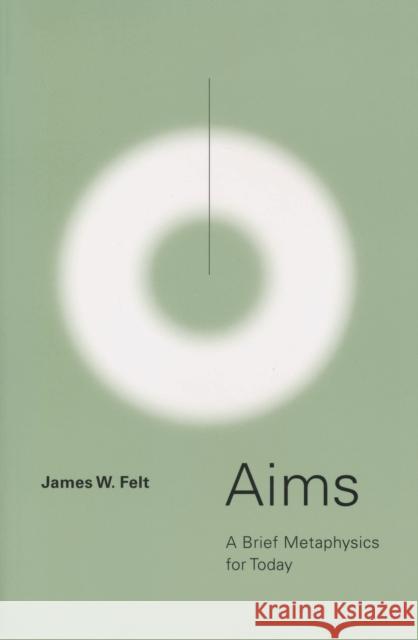Aims: A Brief Metaphysics for Today » książka
Aims: A Brief Metaphysics for Today
ISBN-13: 9780268029012 / Angielski / Miękka / 2007 / 160 str.
Aims: A Brief Metaphysics for Today
ISBN-13: 9780268029012 / Angielski / Miękka / 2007 / 160 str.
(netto: 74,59 VAT: 5%)
Najniższa cena z 30 dni: 77,35
ok. 22 dni roboczych.
Darmowa dostawa!
In "Aims: A Brief Metaphysics for Today," James W. Felt turns his attention to combining elements of Thomas Aquinas's metaphysics, especially its deep ontology, with Alfred North Whitehead's process philosophy to arrive at a new possibility for metaphysics. In his distinctive style, Felt conciselypulls together the strands of epistemology, ontology, and teleology, synthesizing these elements into his own process-enriched Thomism. "Aims" does not simply discuss the strengths and weaknesses of each philosopher s position, but blends the two into a cohesive argument based on principles derived from immediate experience. Felt arrives at what he calls a Whiteheadian-type solution, appealing to his original concept of the essential aim as necessary for understanding our existence in a coherent yet unique world. This concise, finely crafted discussion provides a thoroughly teleological, value-centered approach to metaphysics."Aims," an experiment in constructive metaphysics, is a thorough and insightful project in modern philosophy. It will appeal to philosophers and students of philosophy interested in enriching their knowledge of contemporary conceptions of metaphysics. James Felt's "Aims: A Brief Metaphysics for Today "is an excellent book. It is engagingly written with exemplary clarity, compactness of expression, and admirable thoughtfulness. It is a work in constructive metaphysics that offers a marvelous introduction to the beginner, as well as being engaging to the advanced student. While "Aims" shows the main influences of Aquinas and Whitehead, with Bergson and Merleau-Ponty also important, more importantly it gives expression to the singular appropriation of some of the basic metaphysical issues by James Felt himself. It develops a view of relational realism, with lucid expositions of themes such as the nature of primary being, the act of existing, freedom, participation and God, and the nature of self-knowledge. It distills the author's long reflection on these issues and communicates his considered insights with measured lucidity. William Desmond, Katholieke Universiteit Leuven, Belgium There is a welcome freshness and easy-access approach in this creative presentation of the central philosophical discipline, metaphysics. It starts firmly anchored in our human experience, then moves easily into deeper waters of a proposed Aquinas-Whitehead synthesis. W. Norris Clarke, S.J., Fordham University With modifications to both Aquinas and Whitehead and their complementary interplay, and in contrast to the priority usually given to effective or originating causality, the author argues for the interactive pre-eminence of teleology (aim) and existence (esse) in the promotion and enhancement of cosmic and interpersonal value. In so doing he seeks to restore to the transcendental Good its appropriate place and role. Kenneth Schmitz, University of Toronto"











